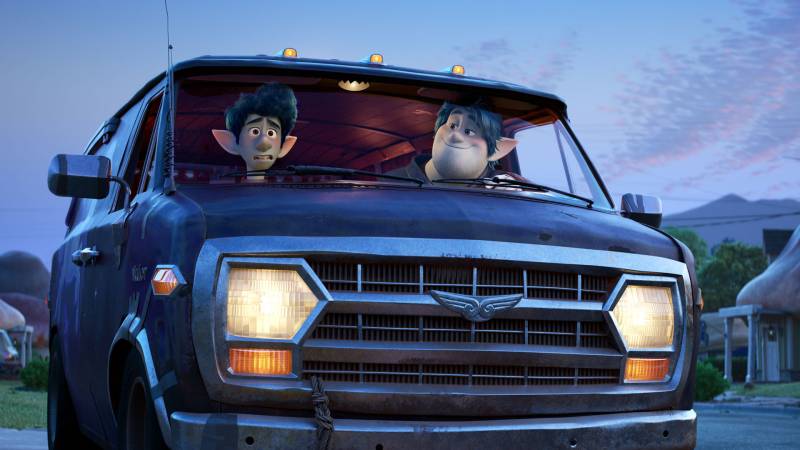In the opening minutes of Disney/Pixar’s Onward, we are met with various manifestations of loss.
There’s the film’s setting, a world where magic once flourished, and with it, pixies, unicorns, pegasi, elves, ogres, centaurs, mermaids—your standard-issue high-fantasy mythofaunic biome. But even here, in a gimmick the film leans into juuuuust enough, the Industrial Revolution arrived. As automation increased, magic faded. Elves still live in giant toadstools, but said toadstools are now rigidly apportioned into vast, Spielberg-suburban subdivisions and cul-de-sacs. Once-splendid unicorns have gone feral, raiding raid trash cans and hissing at passers-by like peculiarly horsey raccoons. If Middle-Earth had more strip-malls, it’d look something like this.
There’s also the loss experienced by the elf-family at the film’s center: mom Laurel (voiced by Julia Louis-Dreyfus) and her two sons—the younger, anxious Ian (voiced by Tom Holland) and his older, buff, RPG-obsessed brother Barley (Chris Pratt, squarely back in Andy Dwyer mode). It’s Ian’s 16th birthday, and he’s given a gift left to him by his late father, who passed away when Ian was too young to remember him: A wizard’s staff.
Finally, in these opening minutes, there’s still another feeling of loss that manifests in the viewer—that of lost opportunity.
The jokes are glib and smarmy, the family dynamics achingly familiar, and as we follow Ian to high school, his every encounter and interaction feels less Disney/Pixar and more Disney Channel—which is to say, too sweet, too cornball, too affected, too faux-contemporary. The average very young child in the audience won’t notice; the average parent will start checking the theater’s exits.


